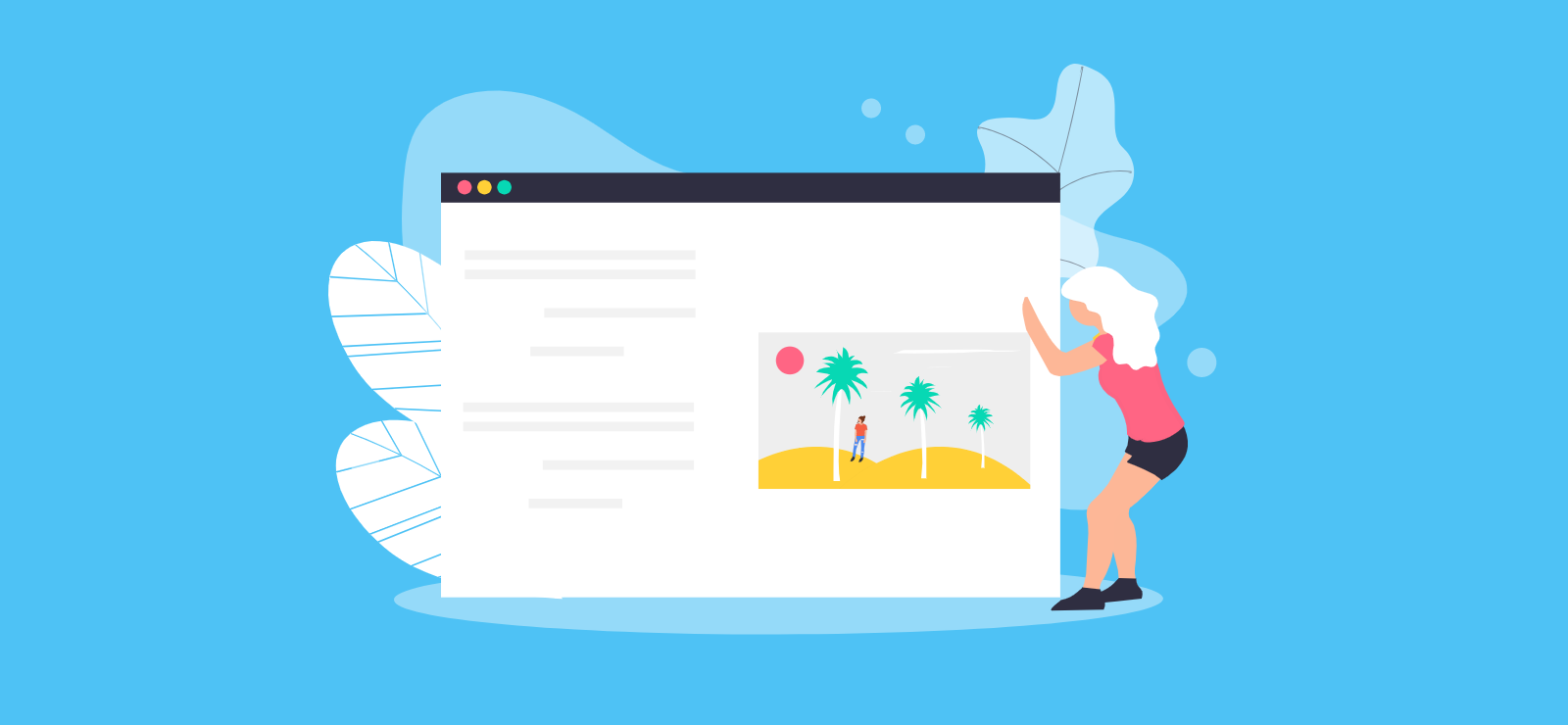

Does My Business Need a Website?
All business owners wonder whether they need a website at some point. It’s true that plenty of businesses benefit from having a good site, but there are also many that simply don’t need one. So, is it worth it?
What would your website do for the business?
When weighing up your business’s need for a website, consider what it would be for. What purpose would it serve for you?
A marketing agency pretty much needs a website to show off its portfolio and expertise. A local hairdresser who relies on word-of-mouth recommendations might do better to focus efforts on building a social media presence instead.
Websites are generally used to promote a business to a wider audience, but getting spotted amongst the online competition isn’t really that easy.
If you build it, they might not come
Unfortunately, going to the time and effort of setting up a site doesn’t automatically result in people visiting it. Once built, the next step is working out how to get people to your site, and how to turn them into customers once they’re there.
If you want to build an ecommerce business and sell online, then a website could be an essential step towards that goal, but it might not be the only option available to you.
What other options are available?
Lots of sellers prefer to use established online marketplaces as a sales platform, rather than setting up a site of their own. These marketplaces, such as Etsy and Amazon, are a bit like having a store in an existing market which already attracts visitors. It helps cut down on the amount of work you have to do for customers to find you.
Do you have the time and budget at the moment?
If you’re still wrestling with the idea of launching a website, consider whether you have the time and money to put into it. A professional-looking site that works properly, attracts visitors, and serves its purpose, will probably need some time and money spent on it.
On the other hand, knowing how to build a website yourself fairly cheaply doesn’t really mean that you should, if you lack the skills or time. Consider how busy you are, too. Designing a website and creating content takes up valuable time that could be spent on the business, even if you do outsource it.
It sounds brutal, but unless the website is a key part of how you run your business, would it be better to put the idea on pause? As an alternative, you might set up a social media profile instead, and use that to produce content – or even run adverts.
A quick guide to the basics of setting up a website
There are several options for setting up a website yourself, depending on your level of knowledge and what you need it to do.
Getting your own domain and hosting
A website domain is the address of the site, and looks like this: www.websitename.com
The hosting is the place where your website files are stored so that they can be accessed by people viewing the site from different locations. The more information on your site, the more space it takes up and therefore the more expensive your hosting will be.
Professional website agencies usually manage the domain registration, hosting, and then the design and build of the website as separate costs.
Using a hosted service
Platforms such as Wix and Squarespace allow you to do everything with your website in terms of set up and management, from one dashboard. You can choose a domain name, and leave them to handle all the hosting and support for you. Most of them now offer a huge range of templates, some of which are customisable.
While some of these platforms have a free plan, to get the most out of your website you will usually have to pay a monthly subscription for services. It’s worth noting that this sometimes makes it more difficult to move to another platform if you need to grow.
Can I use my website to build passive income?
Passive income – making money in the background whilst you crack on with other stuff – is anyone’s dream. Who wouldn’t want to boost their income this way? If you operate your own website, you might be able to use it to generate additional income. We’ve listed a few examples below.
Selling advertising space
Any website can sell ad space, and there are lots of platforms which can help you do this. For example, Google AdSense will put advertisements on your site which are targeted towards the site’s content and audience. You will receive money for hosting these adverts, but advertisers all pay different prices for their adverts so the amount you earn can vary.
It’s worth pointing out this only really brings a decent return if you have a lot of traffic. Another thing to consider is how advertisements affect the website visitor experience. No one likes to be overloaded with ads as soon as they click on a website.
Including affiliate links in your content
When a website visitor clicks on your affiliate link and makes a purchase, the website they arrive on will pay you a commission for sending some business their way.
You can set up affiliate links by joining programmes through other websites or through an affiliate marketplace like ShareASale.
It’s a legal requirement to be upfront about your affiliation with other brands, but it’s good to have this transparency with visitors. It will help them trust you, rather than feeling that they’re being funnelled towards a purchase.
Produce digital products
Digital products are things you create once, such as downloads, templates, eBooks or video training courses, which can then be purchased again and again by visitors.
This is a great way to build passive income because you can sell an eBook to hundreds of people after only creating it once. That said, it’s a good idea to update your digital products every now and then if they become out of date!
Learn more about our online accounting services for businesses. Call 020 3355 4047 to chat to the team, and get an instant online quote.
Want to learn more?
Subscribe to our newsletter to get accounting tips like this right to your inbox

Read more posts...

The Accountancy Partnership – Our Positive Reviews
18th November 2024Here at The Accountancy Partnership, we’re proud of our customer reviews The reviews we receive from our customers show how hard we…
Read More
What’s the Most Tax Efficient Director’s Salary?
8th November 2024As a director you’re legally separate from your limited company even if you’re also the owner. This means you’re not allowed to…
Read More
What’s the Difference Between the National Living Wage and the National Minimum Wage?
7th November 2024The National Living Wage (NLW), the National Minimum Wage (NMW), and the Living Wage all sound confusingly similar, so understanding how they…
Read MoreConfirm Transactions
The number of monthly transactions you have entered based on your turnover seem high. A transaction is one bookkeeping entry such as a sale, purchase, payment or receipt. Are you sure this is correct?
Please contact our sales team if you’re unsure
VAT Returns
It is unlikely you will need this service, unless you are voluntarily registered for VAT.
Are you sure this is correct?
Call us on 020 3355 4047 if you’re not sure.
Bookkeeping
You will receive our bookkeeping software Pandle for free, as part of your package.
You can use this to complete your own bookkeeping, or we can provide a quote to complete your bookkeeping for you.
Please select and option below:
Call us on 020 3355 4047 if you’re not sure.

